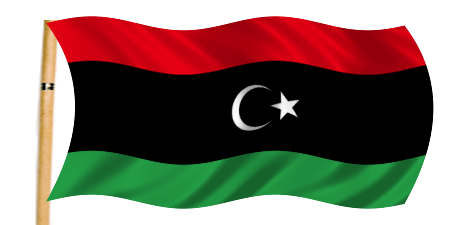Linguistics 001 Lecture 22 Language Change
How and why does language change?
There are many different routes to language change. Changes can take originate inlanguage learning, or through language contact, social differentiation, andnatural processes in usage.
Language learning: Language is transformed as it is transmitted from one generation to the next. Each individual must re-create a grammar and lexicon based on input received from parents, older siblings and other members of the speech community. The experience of each individual is different, and the process of linguistic replication is imperfect, so that the result is variable across individuals. However, a bias in the learning process -- for instance, towards regularization -- will cause systematic drift, generation by generation. In addition, random differences may spread and become 'fixed', especially in small populations.
Language contact: Migration, conquest and trade bring speakers of one language into contact with speakers of another language. Some individuals will become fully bilingual as children, while others learn a second language more or less well as adults. In such contact situations, languages often borrow words, sounds, constructions and so on.
Social differentiation. Social groups adopt distinctive norms of dress, adornment, gesture and so forth; language is part of the package. Linguistic distinctiveness can be achieved through vocabulary (slang or jargon), pronunciation (usually via exaggeration of some variants already available in the environment), morphological processes, syntactic constructions, and so on.
Natural processes in usage. Rapid or casual speech naturally produces processes such as assimilation, dissimilation, syncope and apocope. Through repetition, particular cases may become conventionalized, and therefore produced even in slower or more careful speech. Word meaning change in a similar way, through conventionalization of processes like metaphor and metonymy.
Some linguists distinguish between internal and external sources of language change, with "internal" sources of change being those that occur within a single languistic community, and contact phenomena being the main examples of an external source of change..
Assimilation, or the influence of one sound on an adjacent sound, is perhaps the most pervasive process. Assimilation processes changed Latin /k/ when followed by /i/ or /y/, first to /ky/, then to "ch", then to /s/, so that Latin faciat /fakiat/ 'would make' became fasse /fas/ in Modern French (the subjunctive of the verb faire 'to make').Palatalization is a kind of assimilation.
In the Romance languages below, the word for 'mother' is a cognate in all the six contemporary languages considered, however the word for 'father' is a cognate only in four of the five: in Rumanian, the original word inherited from Latin pater has been replaced by a completely different word, tata.
Spanish and Italian are the only two that retain a phonological reflex of the original Latin medial consonant t, (in both languages, it has been voiced to d, probably a change that occurred in the common ancestor to all the dialects and languages of the Iberian peninsula. All the other Romance languages have dropped it. The originalr has also suffered different fates: however, within each language, the same thing happened in both words. Where we find r deleted in final position in the word for 'mother', we also find it deleted in the same position in the word for 'father'.
English Gloss French Italian Spanish Portuguese Rumanian Catalan
mother mer madre madre mae mama mare
father per padre padre pae tata pare
The same principles are applied in languages that do not have a written history. Several cognate sets in five languages of the Polynesian family are listed in the next table.
What are the results of language change?
When accompanied by splits of populations, language change results first in dialect divergence (the kinds of differences we see between British and American English; between the French of France and of Quebec; between New World and Old World Spanish and Portuguese). Over longer time periods, we see the emergence of separate languages as in the contemporary Romance languages, separated by about 2000 years, and the Germanic languages, whose divergence began perhaps 500 years earlier. Both of these families are part of Indo-European , for which the Ethnologue web page lists 425 languages! Though political considerations often intervene in whether a particular speech variety is considered to be a language or a dialect, the basic idea behind linguistic classifications is that dialects are mutually intelligible, whereas languages are not.
Of course, the question of intelligibility is always relative. The following phrases taken from the spontaneous speech of Chicagoans recorded in the early 1990s were difficult for many non-Chicagoans to understand correctly. In "gating" experiments designed to test cross-dialectal comprehension in American English, subjects first heard a word, then a slightly longer segment, then a whole phrase or sentence that may have disambiguated the original mishearing. These experiments were part of the research project on Cross-Dialectal Comprehension done at the Linguistics Lab here at Penn (for more information on the Northern Cities Shift, see "The Organization of Dialect Diversity" on the home page of the Phonological Atlas of North America .)
These misunderstandings are based on the fact that the Chicago speakers (along with 40 - 50 million other people in the "Inland North" dialect including Rochester, Buffalo, Detroit, Syracuse, and other cities of that region) have a rotation of their short vowels such that the low unrounded vowel of the "short o" words like drop, socks, block, and hot is being fronted to the position where other American dialects have words like that, hat, black, rap, and sacks, , and where "short e" words like met, steady and head can sound like mutt, study and thud or mat, static and had.












